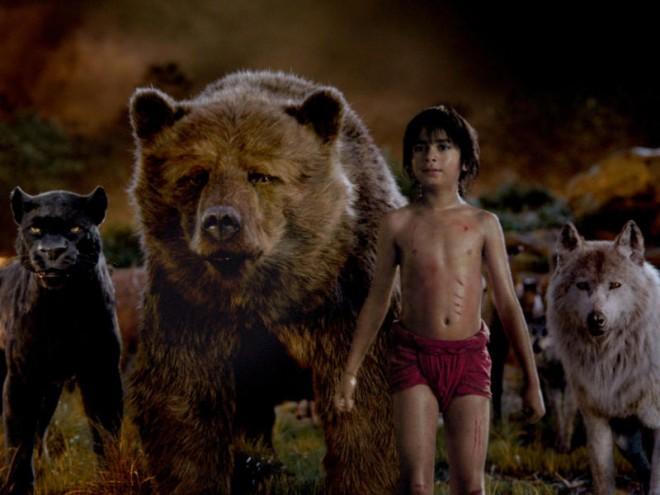Today, CGI can be found in almost everything you see on the big screen. A great example is "The Jungle Book," out this weekend, a live-action retelling of the classic 1967 Disney animated feature. It features eye-popping, realistic CGI animals that "man-cub" Mowgli encounters deep in the jungle.
But before "Jungle Book," there were movies that changed the way the whole medium was understood and wielded with CGI, and expanded the kinds of stories Hollywood can tell.
Here we rank the 23 best movies ever to use CGI (limited to live-action, rather than animated, movies).
23. “The Black Hole” (1979)
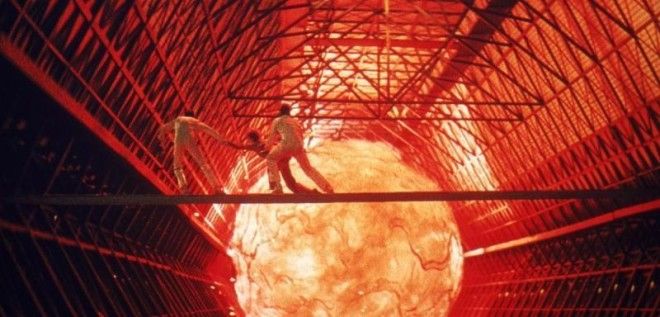
This dark sci-fi fantasy scared the pants off kids in the late '70s, who thought they were going to a typical family-friendly Disney movie. Instead, this look at a mad scientist in charge of a spacecraft heading straight to a black hole was not just a thriller, but displayed a lot of never-before-seen computer-generated sights.
22. “The Perfect Storm” (2000)
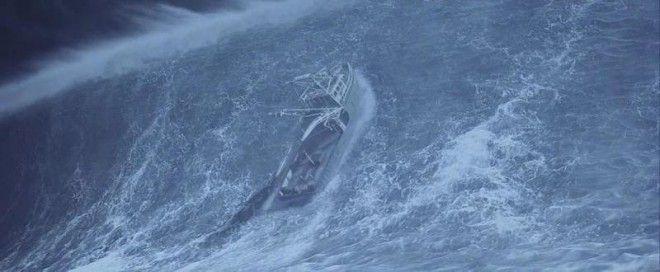
Wolfgang Petersen's adaptation of Sebastian Junger's book about the doomed voyage of commercial fishing vessel the "Andrea Gail" during the real-life Perfect Storm of 1991 follows the crew (played by, among others, George Clooney and Mark Wahlberg) as they find themselves taking on massive storm conditions. Thanks to CGI, we see what it would be like to battle monstrous waves.
21. “Pan’s Labyrinth” (2006)
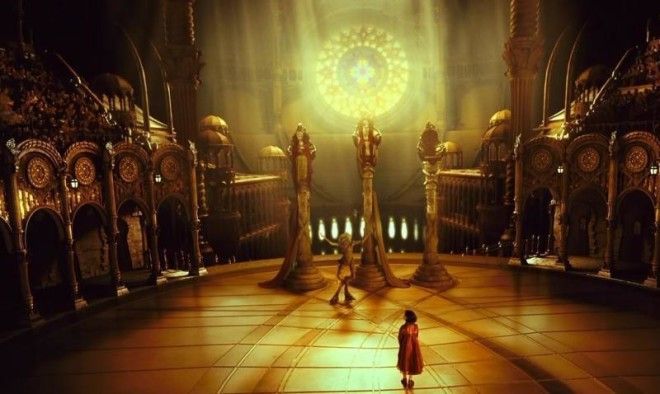
Though there were many practical effects and costumes that made up the incredible fantasy world of this classic by Guillermo del Toro, the film also used CGI to heighten the unique setting explored by a young girl.
20. “300” (2006)
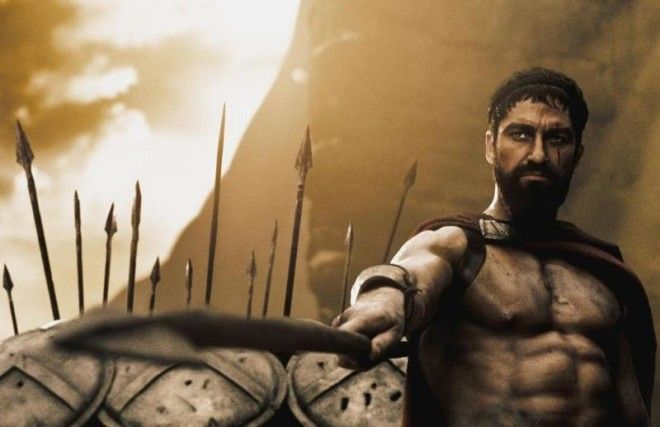
The orange tone, comic book-like features, and even ripped abs on the actors in this adaptation of the Frank Miller novel about a bloody Spartan battle were all made possible by ones and zeroes. This Zack Snyder-directed movie showed how to bring a new aesthetic to the action genre. Unsurprisingly, it's been imitated countless times.
19. “The Curious Case of Benjamin Button” (2008)
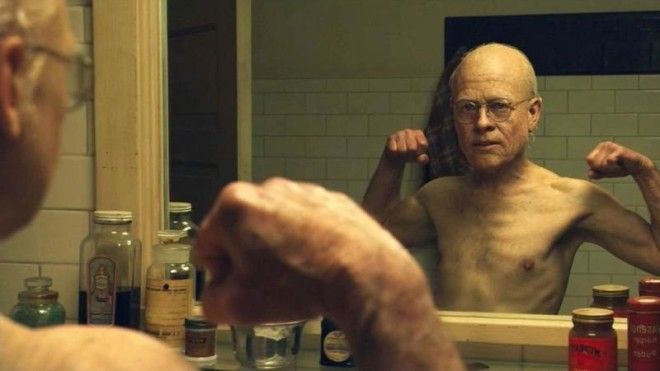
Since the 1980s, filmmakers like Frank Oz and Steven Spielberg have tried to figure out how to make a story about a man who ages backwards. But finally technology caught up in the early 2000s, and it was David Fincher who capitalized. It didn't hurt that he had one of the biggest stars in the world, Brad Pitt, willing to play the lead.
18. “Sin City” (2005)
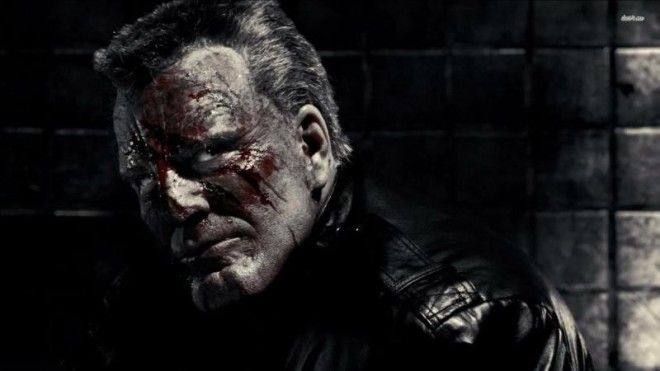
The work of Frank Miller was once again brought to the screen thanks to Robert Rodriguez, who asked the legendary comic writer to work alongside him in the director's chair to make it. The high-contrast black-and-white images with flashes of color are striking and all possible thanks to CGI.
17. “District 9” (2009)
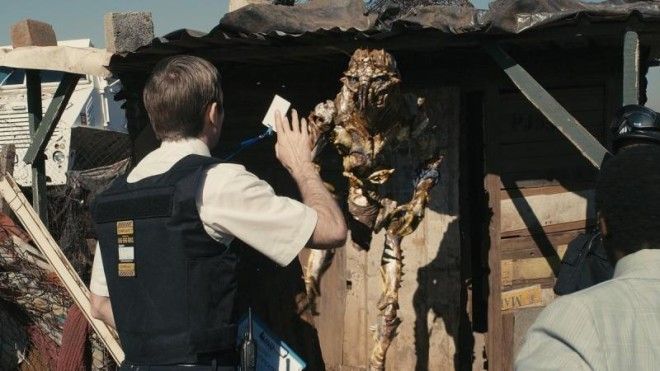
To add realism to the concept of aliens walking among us, director Neill Blomkamp had a keen eye on the crab-like creatures he wanted. Having worked in special effects for years before becoming a director certainly helped elevate to the visuals to amazing heights.
16. “Inception” (2010)
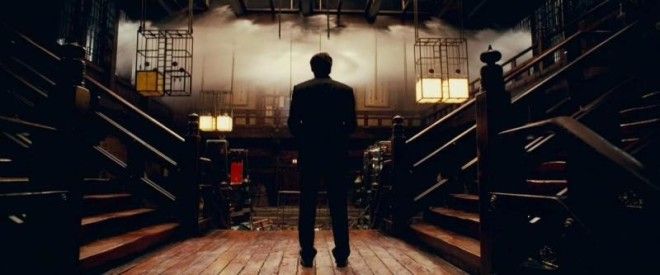
To satisfy the mind-bending ideas behind Christopher Nolan's dream caper movie "Inception," many visuals were done in-camera. But for the "limbo" city Leonardo DiCaprio and Ellen Page fall into by the end of the movie, only CGI could make Nolan's vision a reality.
15. “War of the Worlds” (2005)
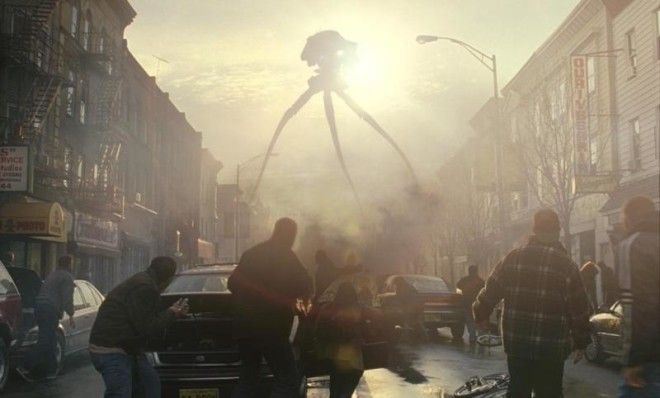
Steven Spielberg's take on the classic sci-fi tale of an alien attack is highlighted by the explosion of the Bayonne Bridge connecting New York and New Jersey. At first, the scene was just to have a gas station explode, but Spielberg wanted something bigger, which led to the CGI wizards at Industrial Light and Magic, the effects company founded by George Lucas, taking on the bridge. The arduous task led to a big payoff that was the action highlight of the movie.
14. “King Kong” (2005)
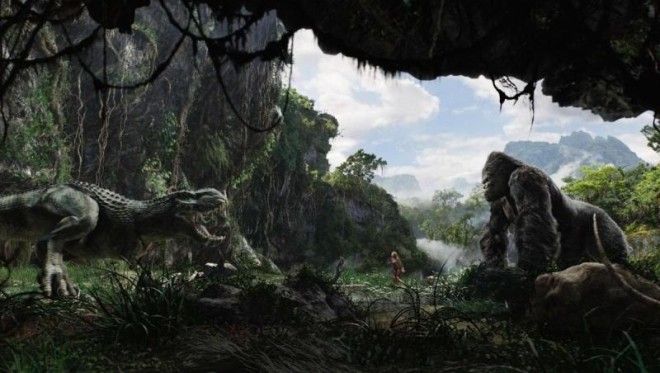
Peter Jackson has never been shy about taking on classics. Between "The Lord of the Rings" and "The Hobbit" movies, he gave us a new look at Kong (with Andy Serkis playing the giant ape). Though most audiences didn't take to it, no one could deny how stunning the title character and other creatures were.
13. “The Day After Tomorrow” (2004)
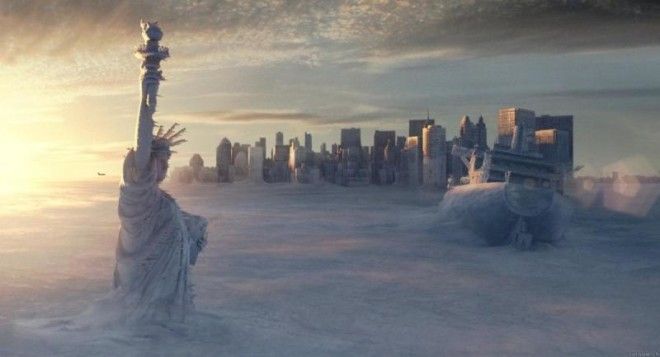
Roland Emmerich has made a living helming blockbusters ("Independence Day," "Godzilla," "2012") with a whole lot of destruction-focused CGI. But his "The Day After Tomorrow" is the most dazzling, putting Jake Gyllenhaal into a new ice age.
12. “Transformers” (2007)
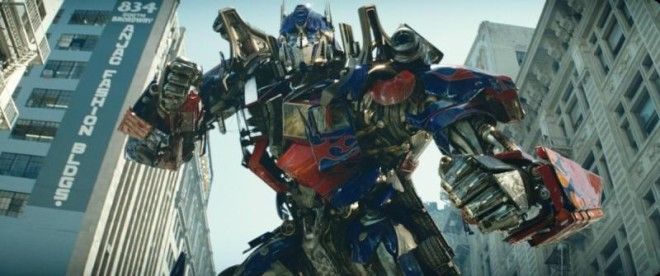
As everyone knows, Michael Bay has also made a lot of money making big movies, and his first "Transformers" movie proved how technology can bring a classic into a new era for mass audiences.
11. “Rise of the Planet of the Apes” (2011)
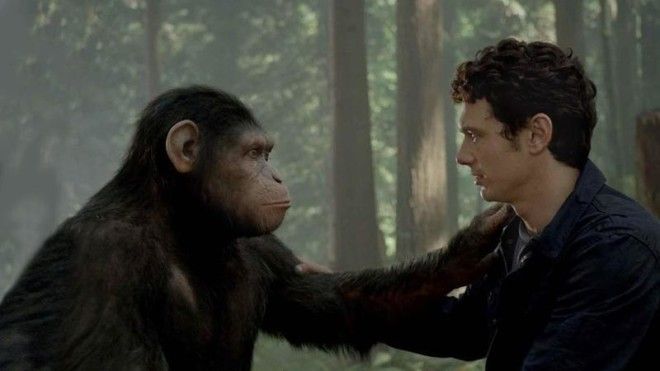
Over 40 years after Charlton Heston cried in front of a broken Statue of Liberty, the apes are back, and Andy Serkis is behind the scenes to make the CGI of the lead ape Caesar as realistic as possible. It completely succeeds.
10. “Minority Report” (2002)
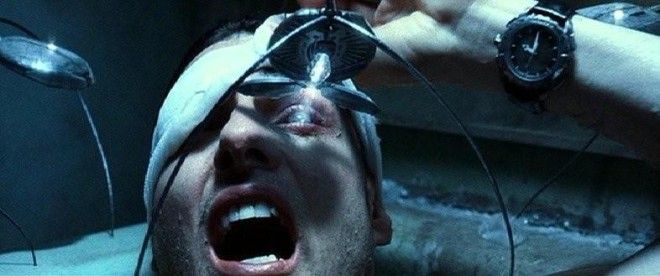
With the help of some of the most forward-thinking people in the world, Spielberg used CGI in this film to present a future involving technology that would likely be in our lives decades later. It's scary to think that some of the things in the movie (putting information in a cloud, for example) are already coming to fruition.
Advertising
9. “Pirates of the Caribbean: Dean Man’s Chest” (2006)
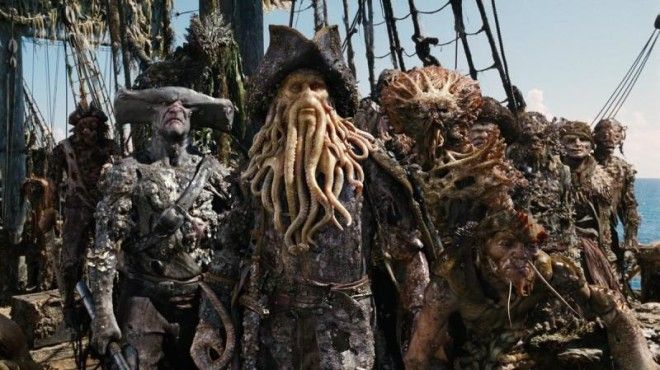
The "Pirates of the Caribbean" franchise was in high gear when this chapter showed up and completely wowed audiences with the Davy Jones character (Bill Nighy). Sporting amazing tentacles for a face, he's one of the highlights in the esteemed work of Industrial Light and Magic.
8. “The Abyss” (1989)
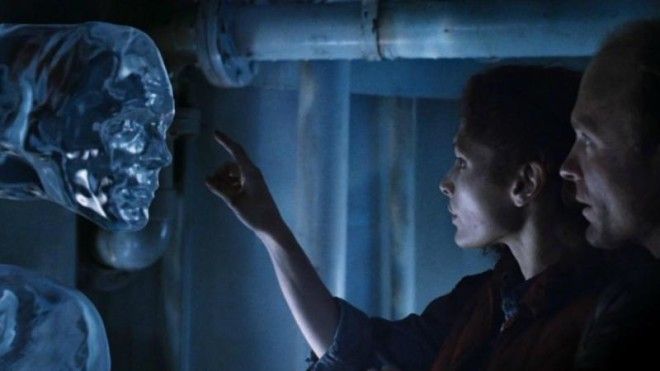
When CGI was still in its early stages, James Cameron's underwater thriller was groundbreaking. Its aliens under the sea showed that computer images could actually make you emotional.
7. “TRON” (1982)
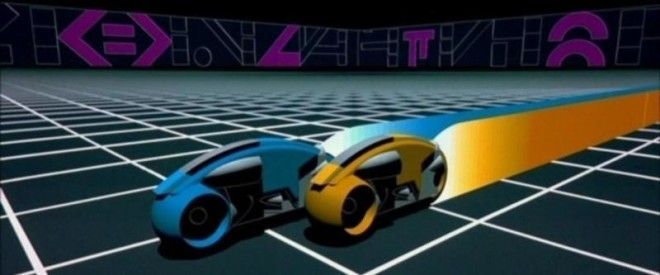
Taking us into video games, Disney created an incredible world of glowing Frisbee-like discs and race cars that inspired every kid to want to jump through the screen and drive. One of the first movies to use computerized imagery, "TRON" had to be shot largely in black-and-white then colored using photographic techniques.
6. “Terminator 2: Judgment Day” (1991)
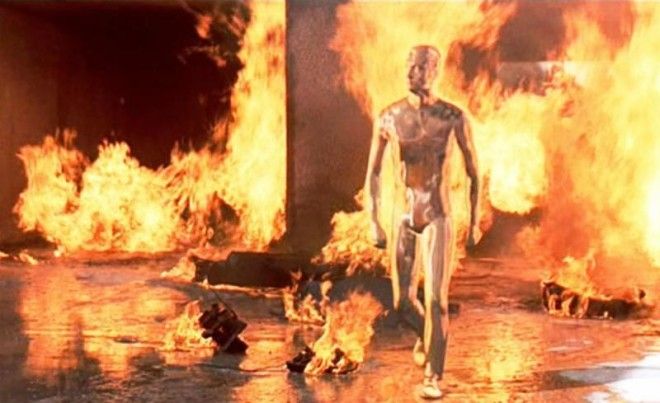
In 1984, James Cameron created a classic villain in "The Terminator," using a lot of practical effects. But for the sequel in 1991, the villain needed to be even more unbeatable. Cameron accomplished that with the T-1000. Made of liquid metal, the new Terminator changed the game when it came to what CGI characters could do in a film.
5. “The Matrix” (1999)
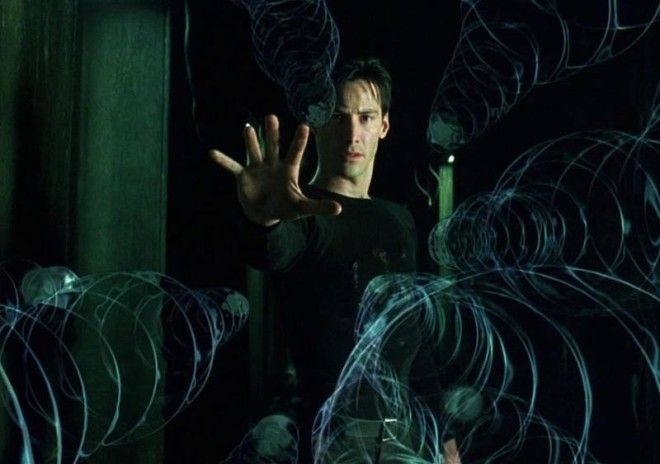
"The Matrix" elevated the action genre more than any other movie in the last 20 years. Nothing like its visuals, enhanced by CGI, had never been seen before. And, for better or worse, they changed how action movies are shot now.
4. “The Lord of the Rings: The Two Towers” (2002)
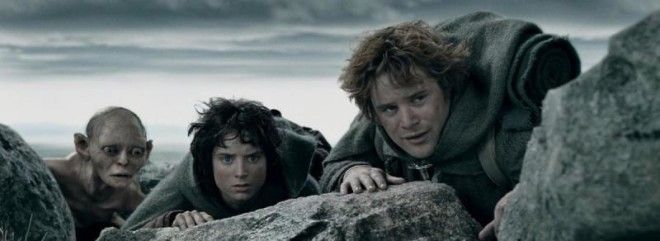
Peter Jackson did impressive work on the first "Lord of the Rings" film, but the next one brought Gollum (yes, played by Serkis) out of the shadows. The visuals of Gollum's facial features and movements, done by Weta Workshop, were an incredible elevation for the technology.
3. “Avatar” (2009)
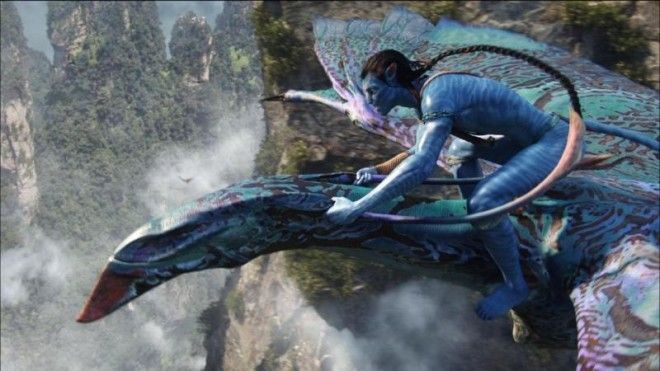
James Cameron has made it virtually his job to elevate the technology of CGI, and with "Avatar" he raised it once more. He waited since the 1990s on new motion-capture technology that's a major reason for all the box-office records the film broke.
2. “Jurassic Park” (1993)
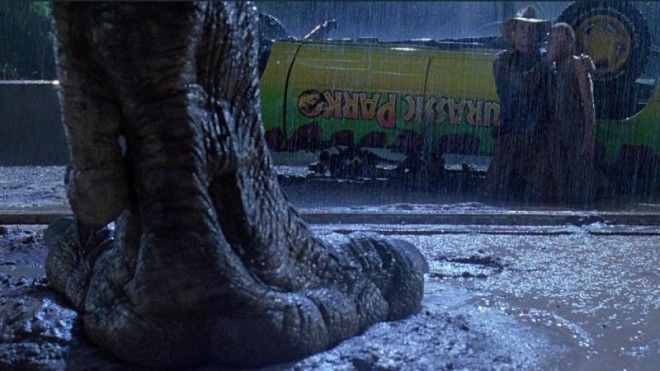
One of Industrial Light and Magic's biggest achievements is still its work on the dinosaurs in "Jurassic Park." The lifelike look of the CG was so impressive that it inspired George Lucas to go forward with making the "Star Wars" prequels, believing that the technology was finally there to continue the saga.
1. “Star Wars” (1977)
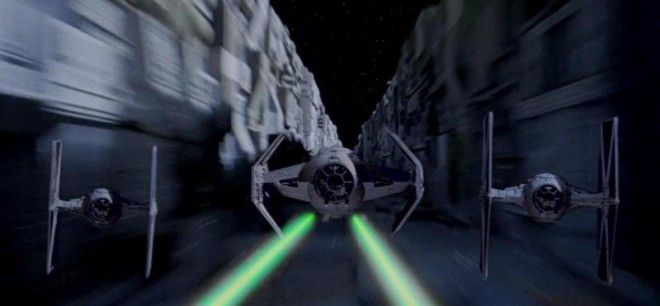
Speaking of "Star Wars," no, those prequels aren't on this list. But none of the achievements in CGI featured on this list would have been possible if it weren't for Lucas making the first "Star Wars." Industrial Light and Magic was created by Lucas for the special effects he wanted in his sci-fi movie. "Episode IV" certainly has a lot of practical effects and matte paintings, but there were computer programs built from scratch for some sequences, like the footage of the Death Star trench the Rebels watch before their attack in the film's finale.
Though it was rough to get off the ground, ILM proved its worth as "Star Wars" pretty much launched the ideas of countless directors who wanted to put their imagination on the screen in a whole new way.
